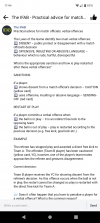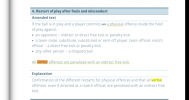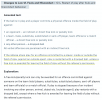Russell Jones
RefChat Addict
With the White team in possession (in a non promising manner), you clearly hear the Blue goalkeeper use obviously Offensive language towards a spectator. Assuming you see this a Red card offence, when do you stop play and what's the restart?





